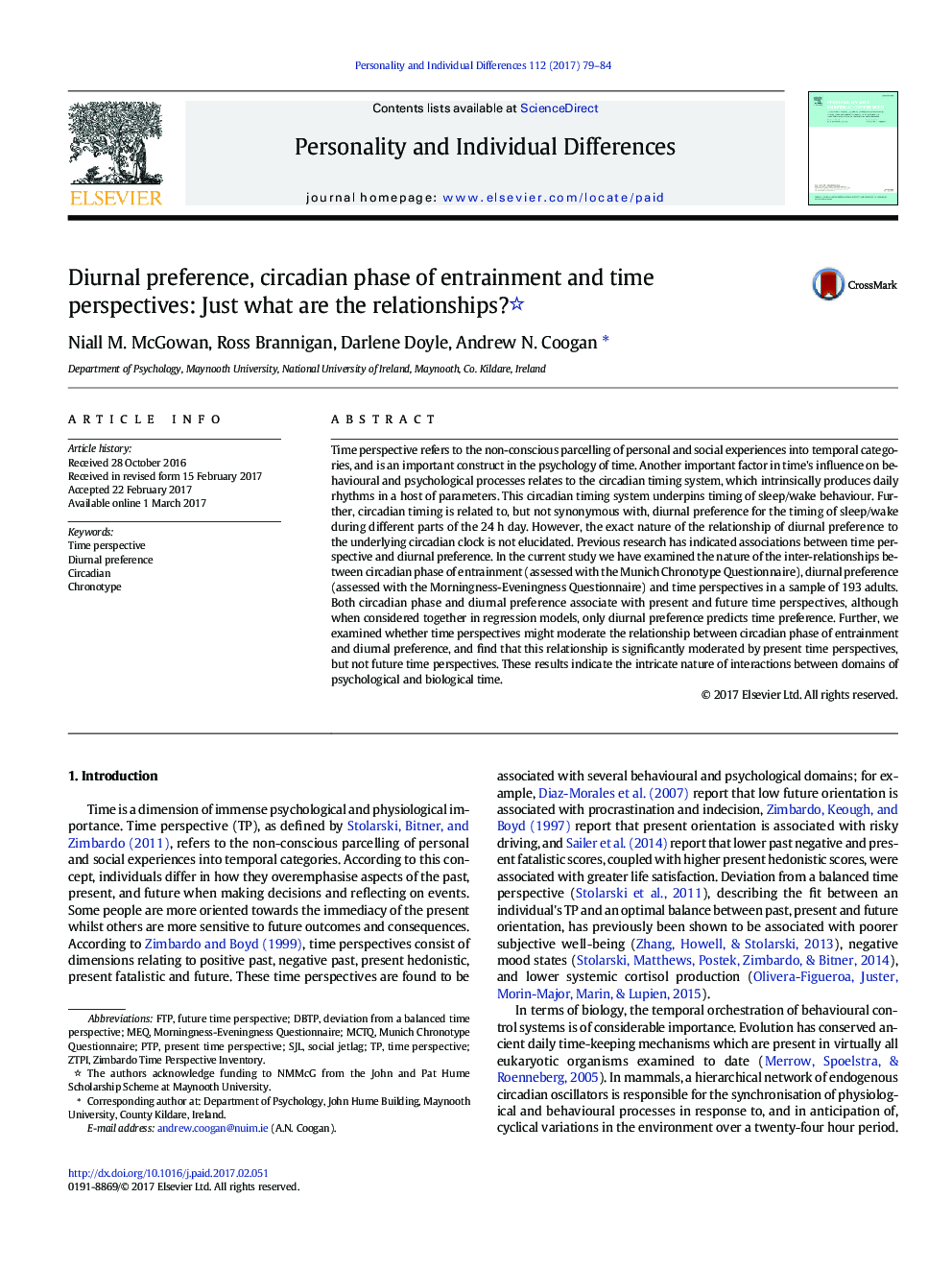| Article ID | Journal | Published Year | Pages | File Type |
|---|---|---|---|---|
| 5035727 | Personality and Individual Differences | 2017 | 6 Pages |
â¢Eveningness associates with present time perspective, morningness with future time perspective.â¢These time perspective associations pertain also to the timing of mid-sleep.â¢Social jetlag associates with deviation from a balanced time perspective.â¢Present time perspective moderates the relationship between mid-sleep and diurnal preference.
Time perspective refers to the non-conscious parcelling of personal and social experiences into temporal categories, and is an important construct in the psychology of time. Another important factor in time's influence on behavioural and psychological processes relates to the circadian timing system, which intrinsically produces daily rhythms in a host of parameters. This circadian timing system underpins timing of sleep/wake behaviour. Further, circadian timing is related to, but not synonymous with, diurnal preference for the timing of sleep/wake during different parts of the 24Â h day. However, the exact nature of the relationship of diurnal preference to the underlying circadian clock is not elucidated. Previous research has indicated associations between time perspective and diurnal preference. In the current study we have examined the nature of the inter-relationships between circadian phase of entrainment (assessed with the Munich Chronotype Questionnaire), diurnal preference (assessed with the Morningness-Eveningness Questionnaire) and time perspectives in a sample of 193 adults. Both circadian phase and diurnal preference associate with present and future time perspectives, although when considered together in regression models, only diurnal preference predicts time preference. Further, we examined whether time perspectives might moderate the relationship between circadian phase of entrainment and diurnal preference, and find that this relationship is significantly moderated by present time perspectives, but not future time perspectives. These results indicate the intricate nature of interactions between domains of psychological and biological time.
